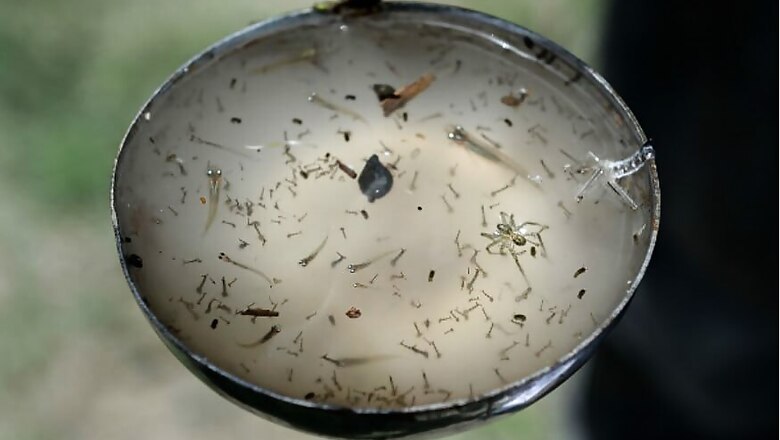
views
Using laboratory-grown blood cells, researchers have set up a new model system to study how malaria parasites invade red blood cells. With no targeted treatment currently available, dengue, malaria, zika, chikungunya and other mosquito-borne diseases affect millions of people worldwide every year.
Researchers at the University of Bristol and Imperial College London used a recently-developed cell line which can produce immature 'progenitor cells' to show that red blood cells generated using this technique can support both invasion by and intracellular development of Plasmodium falciparum, according to Medical Express.
The malaria parasite is responsible for around 200 million infections and half a million deaths per year across the globe.
Funded by the National Institute for Health Research and NHS Blood and Transplant, the study was published in Nature Communications, and provides a “powerful new research tool for the identification of key host proteins and their domains that are involved in parasite infection.”
It will also help scientists better understand and disrupt the mechanism of red blood cell invasion by malaria parasites.
Using the CRISPR-Cas9 technique to edit the genome of the immature cells, the researchers were also able to remove a protein called basigin and normally present on the surface of red blood cells.
By doing so, the researchers were able to show that the reticulocytes generated from this edited line were completely resistant to invasion of malaria parasites.
By reintroducing the basigin gene into the edited cells, the researchers were able to restore invasion to normal levels, thus showing that
the cells can be used to remove and replace different red blood cell proteins and assess how their absence or alteration affects the invasion ability of the parasite.
"The ability to alter protein expression in the red blood cell and study the effect that these changes have on parasite invasion or development is hugely exciting. This system has opened up many new potential avenues of research that should allow us to better understand the mechanism by which the malaria parasite is able to successfully invade the red blood cell, and the specific roles that host cell proteins play in this process," Dr. Tim Satchwell, lead author of the study at the University of Bristol said.
"This work has shown that it is now possible to manipulate the red blood cell surface to better understand the process of malaria invasion.
It also shows that our reticulocytes produced from the cell line are recognised by the parasite just the same as reticulocytes produced in the body. This is important as it provides further evidence that the cells are manufactured correctly in the laboratory,” said Dr. Ashley Toye, co-author of the study and Director of the NIHR Blood and Transplant Research Unit.




















Comments
0 comment